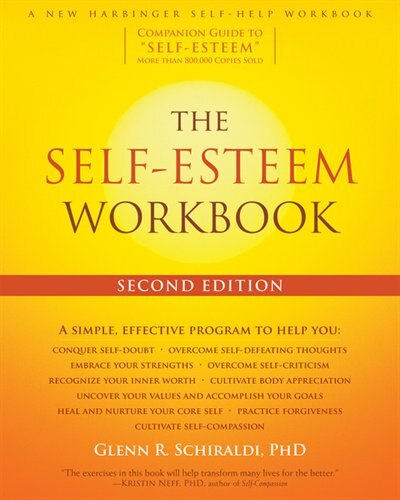Self-esteem refers to the way individuals view themselves including what they think about themselves and the worth they give themselves as a person. If an individual thinks negative thoughts about themselves or places little value on themselves as a person then they may encounter issues with self-esteem, which in turn can affect their mood, anxiety, socialisation, and behaviour. Most people will experience negative thoughts about themselves from time to time, for example you may occasionally feel disappointed or unhappy with some aspect of yourself. However, if you frequently think negatively about yourself and have a low opinion of yourself across multiple domains in your life then it is likely you have low self-esteem.
Difficulties associated with low self-esteem
Individuals with low self-esteem typically have deep-rooted negative opinions of themselves and place low value on themselves as people. They often judge and evaluate themselves very negatively and this can interfere with many aspects of their daily functioning. The following list summarises some of the outcomes of having low self-esteem:
Highly self-critical
People with low self-esteem will often criticise themselves and their abilities in a negative and unhelpful way. This may involve saying bad things about themselves, doubting themselves or blaming themselves for things that go wrong.
Blind to positive qualities
Individuals with low self-esteem usually focus on the real or imagined negative qualities they have whilst ignoring the positive ones. Rather than focus on the nice things that people have said about them or the positive traits they have, they will often dwell on the mistakes they have made or the things that they have done wrong.
Emotional difficulties
Individuals with low self-esteem will also typically experience a range of negative emotions such as depression, anger, sadness, guilt, shame and irritation, which is a direct result of feeling negatively about oneself.
Interference with work and study
Low self-esteem can have a very negative impact on one’s study or work life. For example, an individual with low self-esteem may continuously doubt their abilities which may lead to procrastination or failing to try and give things a to, which in turn prevents them from achieving what that are capable of. Conversely, people with low self-esteem may feel the need to overcompensate and push themselves due to a fear of failure or not being good enough.
Relationship difficulties
Low self-esteem may prevent individuals from making connections and bonds with others due to fears of rejection, criticism or disapproval. Additionally, people with low self-esteem may be less likely to stand up for themselves and be assertive in social situations which may leave them a target for bullying or being ‘walked over’.
Social engagement and recreational activities
People with low self-esteem may avoid certain social situations or leisure activities for fear of being judged or evaluated negatively.
How is low self-esteem developed and maintained?
Typically, the negative thoughts or opinions individuals hold of themselves are a result of previous experiences, especially ones that occurred early on in life. This occurs because an individual generally develops an identity or self-concept based on experiences they have had during childhood.
An individual’s family, peers, school/home environment and the society they grew up in all influence the way they view themselves (their self-concept). If these experiences were negative in some way then it is likely to affect the beliefs the individual holds of themselves. For example, experiences such as abuse, harsh punishment from parents, or lack of praise about someone’s personal qualities, or not fitting in at school are likely to have had an adverse influence on an individual’s self-concept.
Whilst it is common for early experiences to impact self-esteem, it is also possible for experiences in adulthood (e.g., abusive relationships or workplace bullying) to have a significant effect on the way people view themselves. These experiences are likely to have a lasting impact on one’s self-esteem even after the negative experience has passed. This occurs because of negative core beliefs, which are the conclusions individuals make about themselves based on negative experiences that they have encountered throughout their life. These core beliefs are firmly ingrained evaluations of one’s self-worth and continue to influence people’s thoughts and behaviours in all areas of life.
For example, someone who is bullied as a child or adolescent may develop a negative core belief that they are worthless and unlovable which is likely to negatively influence the way the individual views themselves and have ongoing consequences for future experiences so that even small events that could be interpreted in this way. For example, a friend cancelling a dinner date) is magnified and taken as evidence that the person is unlovable.
Treatment for low self-esteem
Whilst psychologists are not able to change people’s past experiences, they can help individuals challenge and modify any current unhelpful thoughts and behaviours that might be contributing to maintaining the negative core beliefs that one has of themselves. This type of treatment is more commonly known as Cognitive Behaviour Therapy and has been shown by research to be an effective treatment for people with low self-esteem.
The psychologist will initially work with the individual to help them identify their negative core beliefs. This involves a process by which the individual learns to recognise what their negative core beliefs are, how they might have developed, and how these beliefs might be impacting their day-to-day life. Once these beliefs have been identified the psychologist may work with the client to challenge and adjust these negative self-evaluations.
One of the key aims of therapy will be to develop more balanced and realistic self-evaluations rather than having self-evaluations that are predominantly negative. As a result, the psychologist may work with the individual to challenge and question the negative thoughts and opinions they have about themselves by examining the evidence for/against these beliefs, as well as using ‘experiments’ to test out these beliefs in real life.
If you would like to book an appointment with one of our clinical psychologists who provides strategies to improve self-esteem please email or call the clinic on 02 9438 2511.


